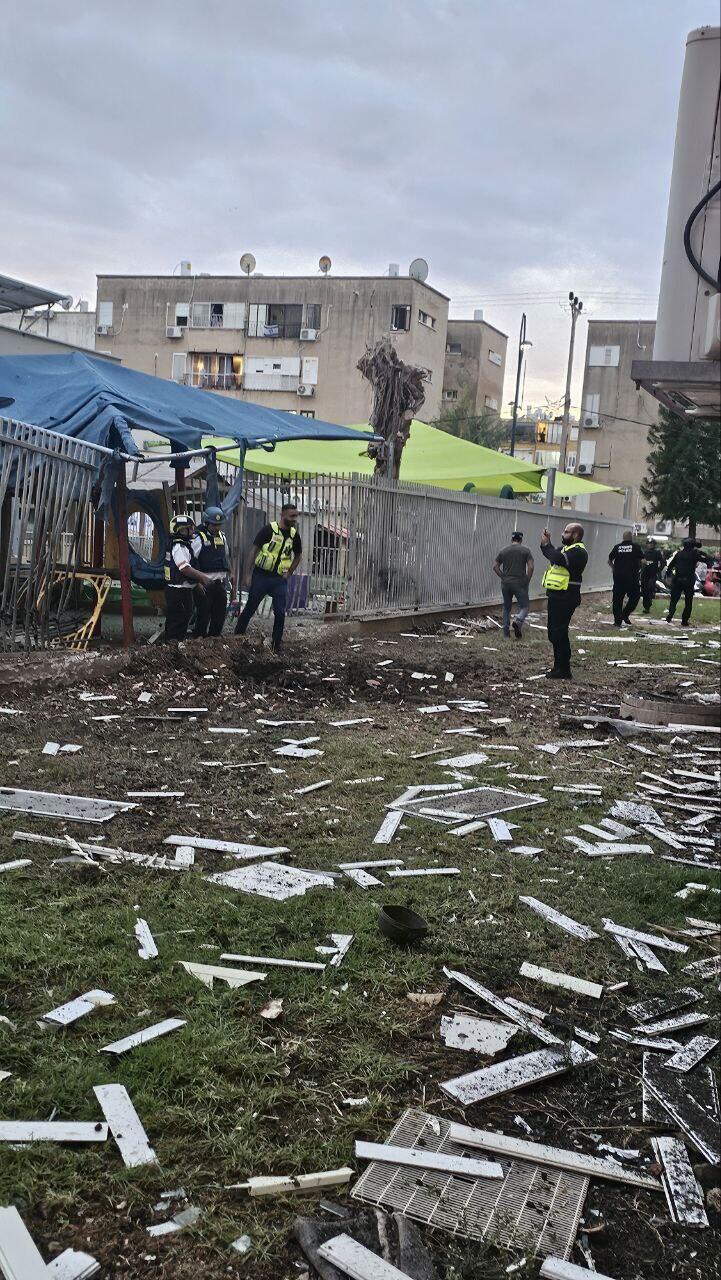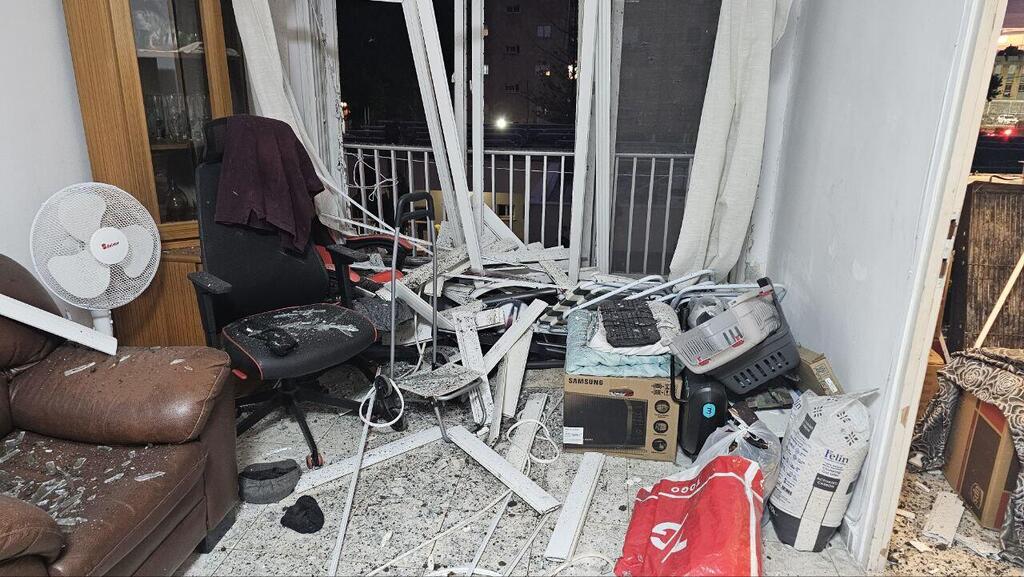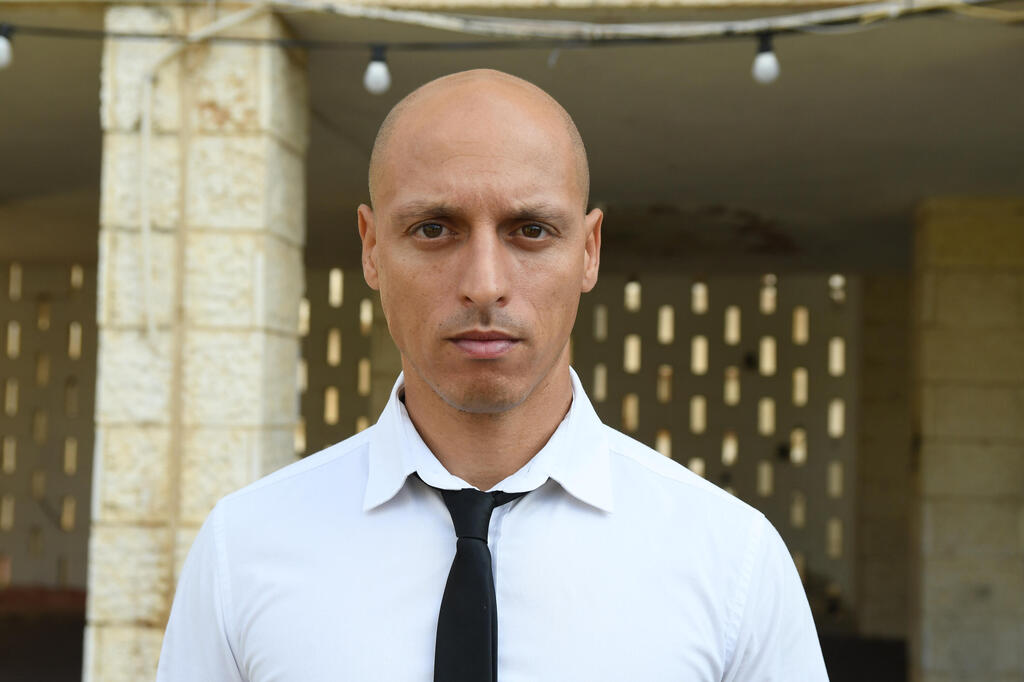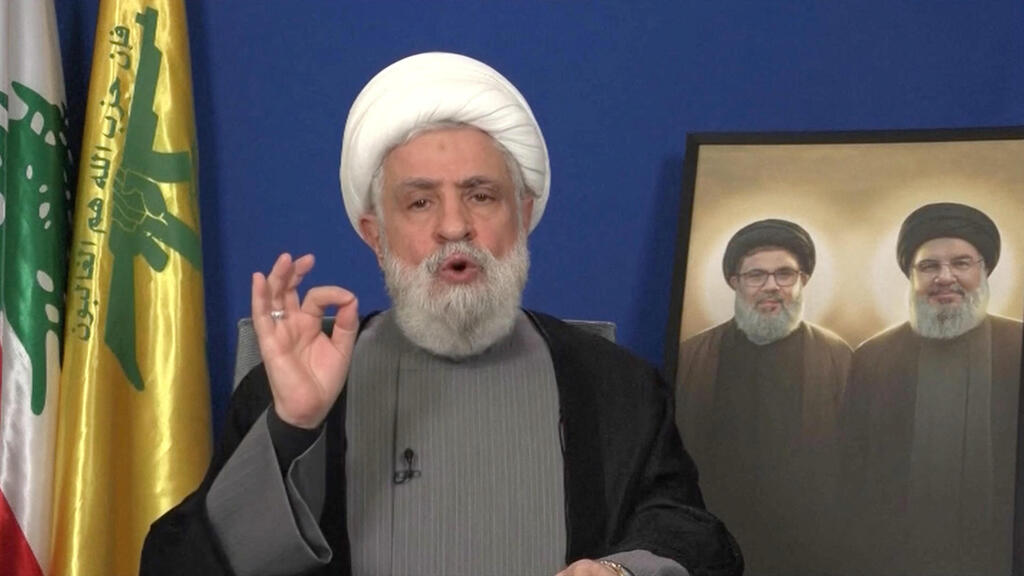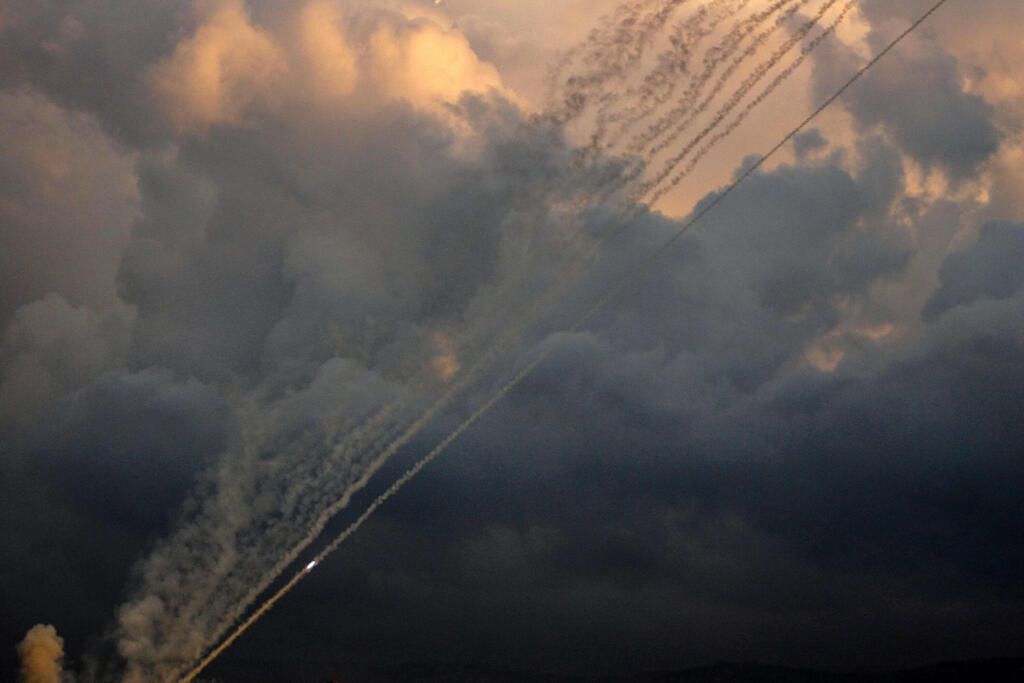Getting your Trinity Audio player ready...
A barrage of 25 rockets launched by Hezbollah struck the Western Galilee on Wednesday, with one rocket directly hitting the fence of a kindergarten in the coastal city of Acre.
No children were present at the time of the strike, but the kindergarten sustained significant damage, and dozens of nearby buildings were also impacted by the blast. The IDF reported that only some of the rockets were intercepted by air defenses.
Assi Abutbul, a 25-year-old local, described the aftermath. “I heard a loud noise and went outside to see a hole in the kindergarten,” he said. “There were children here this morning. This is not a good situation—not at all.”
When asked about the prospects for a cease-fire, Abutbul was dismissive. “There is no settlement, no security, nothing. It’s all lies. Missiles are hitting kindergartens and schools. There’s no security or agreements—just nonsense.”
In response to the attack, the Acre municipality announced the suspension of classes citywide on Thursday and Friday. Mayor Amichai Ben-Shlush conducted a situation assessment at the site and determined that educational institutions would remain closed until at least Sunday. Further decisions will be made following a reassessment on Saturday night.
In a conversation with Ynet, Mayor Amichai Ben-Shlush clarified that he does not intend to continue adhering to Home Front Command guidelines, which permit the reopening of classes and transportation. Instead, he ordered the closure of schools, kindergartens and daycares, many of which had only recently reopened for a limited number of students. For the past nine weeks, educational activities in the city have been almost entirely suspended due to the ongoing security situation.
Ben-Shlush revealed that about 120 children had been enrolled in the kindergarten that was struck and noted that they had left the premises only about 35 minutes before the rocket hit, at 3:45 p.m. “It’s a miracle. You can see the hole in the fence,” he said, pointing to the damage caused by the rocket.
Ben-Shlush argued that the incident reinforced his belief that fully resuming the education system should be avoided and done “patiently” and gradually, even if the Home Front Command does not impose restrictions. “I will act according to my instincts for the safety and security of Acre’s children,” he vowed.
The mayor also criticized the government’s handling of the situation. “The education minister visited the city today and toured with me. I told him again that many educational institutions still lack safe zones,” Ben-Shlush said.
“I described the reality of dozens of schools without protected areas that I cannot safely reopen. Even if the children return, they will fear coming to schools because of the lack of shelter. The older schools are like cardboard. We’ve had a few miracles already, and this was another one. I’m calling on the Israeli government to help us—don’t forsake us.”
The barrage was fired immediately after Hezbollah Secretary-General Naim Qassem delivered a speech in which he declared that the terrorist organization would continue attacking Israel until a cease-fire agreement is reached. He threatened to target Tel Aviv and central Israel in retaliation for Israeli strikes in Beirut, which have significantly escalated in recent days amid ongoing negotiations.
"We will not leave the capital under fire from the Israeli enemy. When Beirut is under attack by the enemy, the response must target the center of Tel Aviv," he said, seemingly referring to Tel Aviv as Israel’s capital. "The enemy must understand that things will not remain as they are when it attacks Beirut."
In his remarks, Qassem addressed the negotiation efforts with Israel, stating that Hezbollah has submitted its comments on the American-brokered proposal and is now awaiting Israel's response. "The success of the negotiations depends on the Israeli response and Netanyahu's seriousness," he asserted.
He outlined two conditions, which he referred to as "limits" for the negotiations: a complete halt to what he called "Israeli aggression" and the preservation of Lebanon's sovereignty. The latter is likely a reference to a contentious clause permitting Israeli freedom of action in response to violations of the agreement.
U.S. envoy Amos Hochstein arrived in Israel on Wednesday evening after visiting Beirut, where he received Hezbollah’s response to an American-brokered cease-fire proposal.
Hochstein described the negotiations as having made “positive progress” and is set to meet shortly with Strategic Affairs Minister Ron Dermer, a close confidant of Prime Minister Benjamin Netanyahu. Talks will continue Thursday, with Israel’s Security Cabinet convening in the evening for a briefing on the developments.
Senior diplomats said an agreement is “closer than ever,” with 90-95% of the details finalized, but warned that “the devil is in the details.” They noted that sensitive issues, including the establishment of a monitoring mechanism, remain unresolved.
“There appears to be shared interest in reaching a deal, but key decisions must still be made,” one diplomat said. The proposed monitoring framework would involve significant roles for the U.S., France and Britain, aimed at bolstering the Lebanese Armed Forces through arms and advisory support. Military cooperation from Jordan, Egypt and the United Arab Emirates is also expected to play a role in strengthening Lebanon’s military capabilities.
Meanwhile, the IDF continues its operations in Lebanon, with the military reporting significant strikes against Hezbollah operatives and infrastructure. On Wednesday, the IDF announced that Israeli Air Force fighter jets had killed Hezbollah’s operations commander and the commander of its anti-tank missile array in a strike on Sunday.
According to the military, the two were responsible for multiple attacks against Israeli civilians and soldiers, including anti-tank missile strikes on the Western Galilee and central Israel. The IDF said that their elimination deals a significant blow to Hezbollah’s operational capabilities.
In southern Lebanon, IDF forces uncovered ammunition depots and seized caches of weapons and equipment during ongoing ground operations. Over the past 24 hours, the Air Force struck more than 100 Hezbollah targets, including rocket launchers, weapons warehouses, command centers and operational buildings, the IDF said.
Get the Ynetnews app on your smartphone: Google Play: https://bit.ly/4eJ37pE | Apple App Store: https://bit.ly/3ZL7iNv




